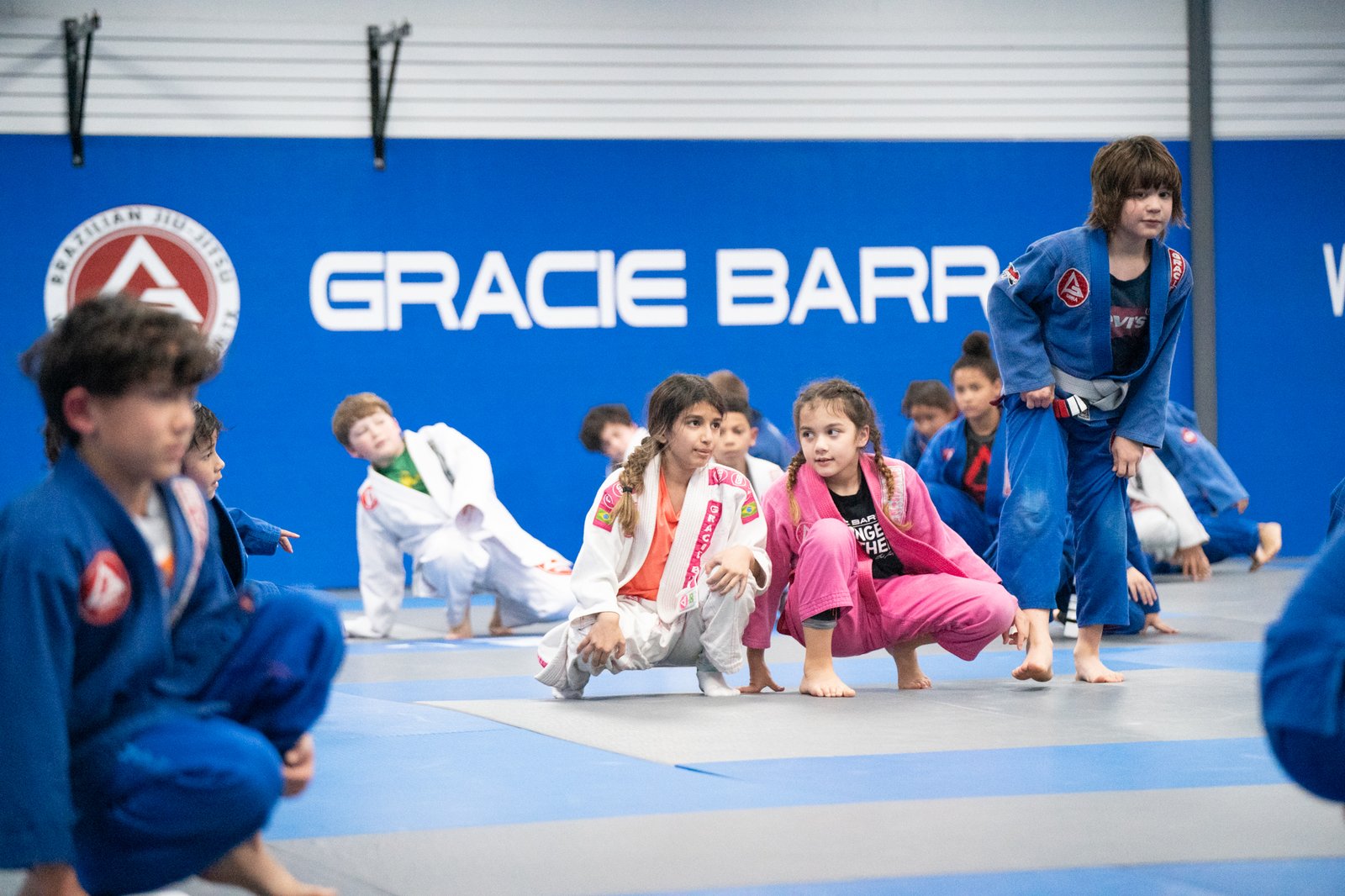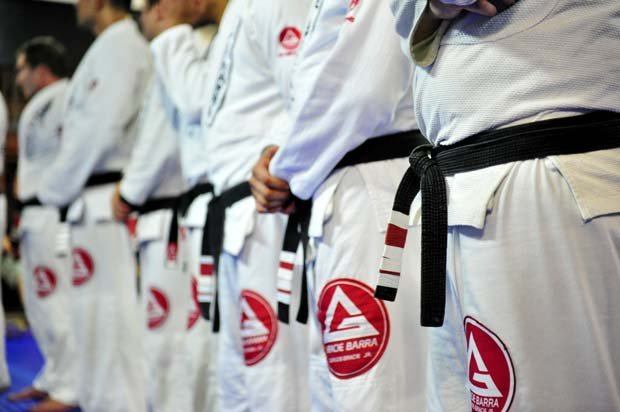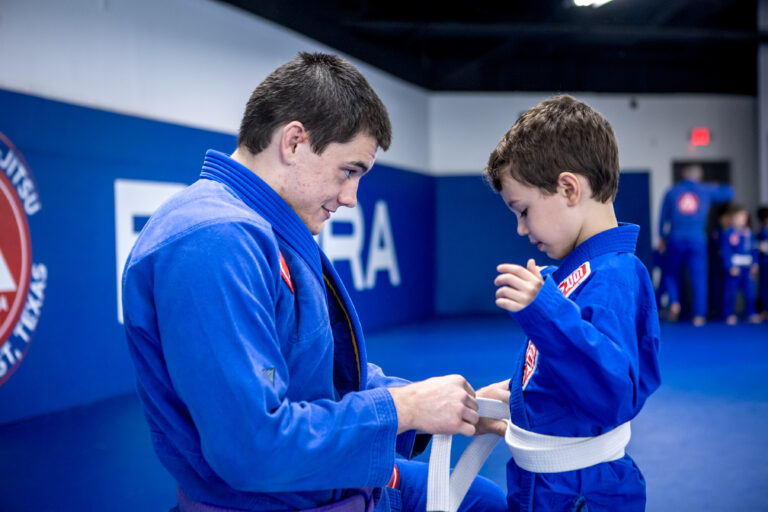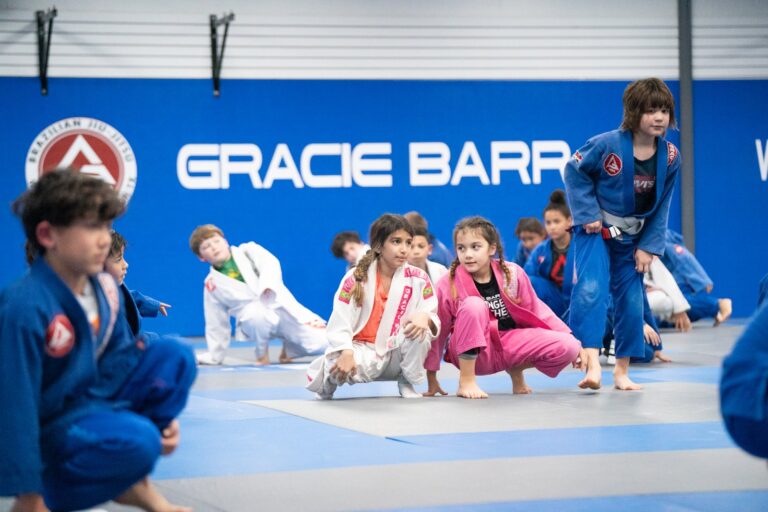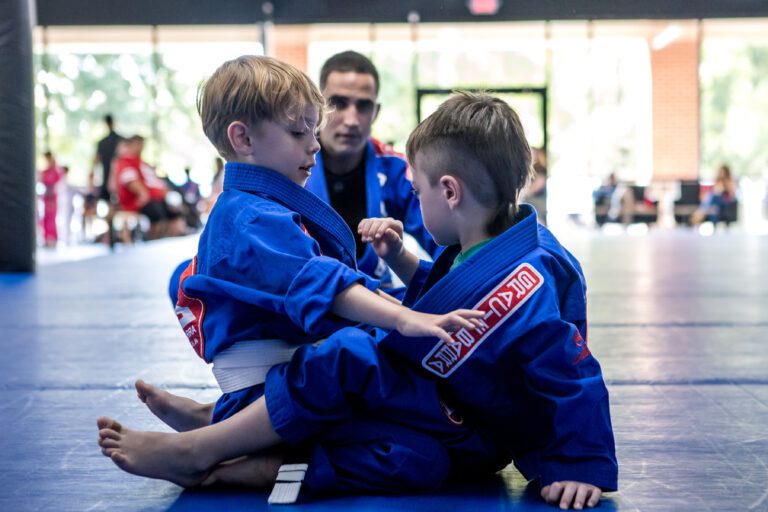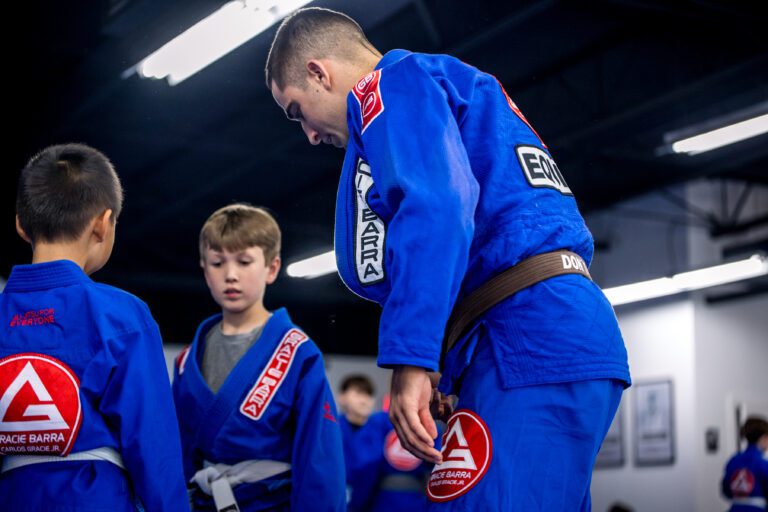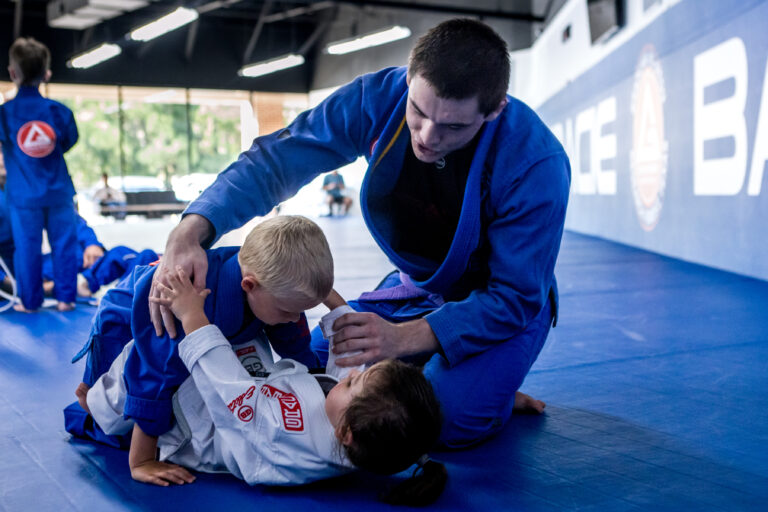Essential Self-Defense for Teens: Safety and Confidence in the Modern World
The teenage years often present unique and significant challenges. Adolescents must navigate increasing independence, new social pressures, and digital threats. While parents consistently strive to ensure their child’s safety, equipping teenagers with practical self-defense skills provides them with a profound, internal layer of protection. True self-defense extends far beyond mere physical techniques; it encompasses vital situational awareness, mental preparedness, and the quiet confidence to de-escalate potential conflicts. This comprehensive guide explores how targeted self-defense training empowers teens to handle physical and social threats successfully. This investment directly translates into greater assurance and safety during this crucial stage of development.
bjj classes in Research Forest
1. Situational Awareness: The First Line of Defense
Experts universally agree that the most effective form of self-defense is always prevention. Teaching teenagers how to read their environment and recognize danger signals is essential. Indeed, awareness is the single most powerful tool in any self-defense arsenal.
Recognizing and Avoiding Potential Threats
Teenagers must learn to operate with a proactive “yellow light” mindset. This means staying alert and continuously scanning their immediate surroundings. For instance, they should avoid distractions like constantly looking at a phone while walking alone. They must learn to trust their instincts completely. If a place or person feels wrong, they should immediately remove themselves from that situation without hesitation or fear of being rude. Recognizing pre-attack indicators—such as rapid closing distance or aggressive body language—allows them to act before a threat escalates physically. This heightened state of awareness minimizes the chances of becoming a target in the first place. You can learn these valuable lessons in any martial arts skills program.
Digital Safety and Social Media Awareness
The modern landscape introduces digital threats that are often as dangerous as physical ones. Teenagers must be educated about protecting their personal information fiercely. They need to understand the serious risks associated with sharing their specific location or details about their routines online. Furthermore, they must recognize that digital interactions can quickly lead to real-world danger. Self-defense training should include instruction on how to maintain necessary privacy boundaries and how to responsibly manage their digital footprint. Ultimately, safety involves being smart both online and offline constantly.
2. Building Mental Fortitude and Unshakeable Confidence
Physical defense is useless if panic takes hold of the mind. Consequently, the greatest benefits of self-defense training for teens are mental and psychological. They learn to remain calm, focused, and decisive when facing extreme pressure.
The Power of Assertiveness and Body Language
An attacker often seeks an easy target—someone who appears passive, distracted, or overtly submissive. Self-defense training immediately teaches teens the importance of projecting confidence through their posture and voice. Students learn to maintain direct eye contact and speak with an assertive, clear tone. This display of confidence often dissuades potential aggressors instantly. This is a crucial skill learned on the mat, as students must be confident when addressing peers or instructors. This learned assertiveness is invaluable in social situations, preventing teens from being easily peer pressured or intimidated. We believe in building strong character through these practices.
Managing Fear and the Adrenaline Rush
When facing danger, the body floods with adrenaline, which can cause paralysis or uncontrolled aggression. Effective self-defense classes teach controlled breathing and systematic mental drills to manage this extreme physiological response. Teens learn that fear is normal but should not control their actions. They practice defensive scenarios repeatedly under stress. This essential training allows them to access their learned techniques under pressure. They gain the mental clarity necessary to make split-second, life-saving decisions when it truly matters most. This is an essential component of any BJJ training today.
3. Practical Physical Skills: Focused on Escape
For teenagers, especially those with smaller frames, effective self-defense must prioritize neutralizing an immediate threat and creating space for a quick escape. Techniques that rely solely on brute force are typically ineffective.
Brazilian Jiu-Jitsu: The Ideal Foundation for Teens
Brazilian Jiu-Jitsu (BJJ) is perfectly suited for teenagers because it emphasizes leverage, technique, and timing over mere size or strength. BJJ training teaches teens how to manage a standing threat and, critically, how to effectively defend themselves if a conflict goes to the ground. Since many real-world assaults end up on the ground, this specialized knowledge is incredibly valuable for immediate safety. BJJ techniques focus on joint locks, chokes, and positional control—skills that allow a smaller, weaker person to control and subdue a larger assailant. The focus is always on survival, control, and escape. Learn more about our specialized self-defense programs for youth.
Escape Techniques and Creating Distance
The core goal in a physical altercation is always to escape safely. Teens are trained in fundamental breakaways and releases from common grips and holds (wrist grabs, bear hugs, etc.). They learn to utilize sudden movements to stun the attacker and immediately create distance. Once distance is established, they are taught to run toward the nearest safe location. The continuous, rigorous practice of these escape techniques in BJJ makes these movements reflexive under stress. We offer dedicated fitness training programs that build the necessary strength for effective escapes.
4. Addressing Social and Emotional Threats
While physical confrontations are a concern, teenagers frequently face emotional and social threats, such as intense peer pressure, verbal harassment, and cyberbullying. Self-defense prepares them for these as well.
Verbal De-escalation and Setting Boundaries
Many conflicts start and can be successfully resolved verbally. Teens are taught to use clear, firm language to refuse unwanted requests or to stop a verbal attack. They learn how to set and enforce personal boundaries with confidence and consistency. Role-playing different scenarios, a common practice in BJJ class, helps them practice these verbal strategies effectively. By mastering de-escalation, they can avoid physical conflict entirely, which is the safest outcome. For those interested in long-term physical well-being, this mental control is paramount.
The Anti-Bullying Mindset
Martial arts academies often integrate anti-bullying education directly into their curriculum. This training reinforces that a true martial artist never initiates confrontation. Furthermore, they are taught the importance of reporting bullying incidents to an adult, not handling it alone. The confidence gained through BJJ training often changes a teen’s entire demeanor. This quiet self-assurance makes them less vulnerable to targeting. When they realize their personal strength, they are less likely to tolerate disrespect or aggression from others. This is an invaluable component of any comprehensive curriculum and schedule.
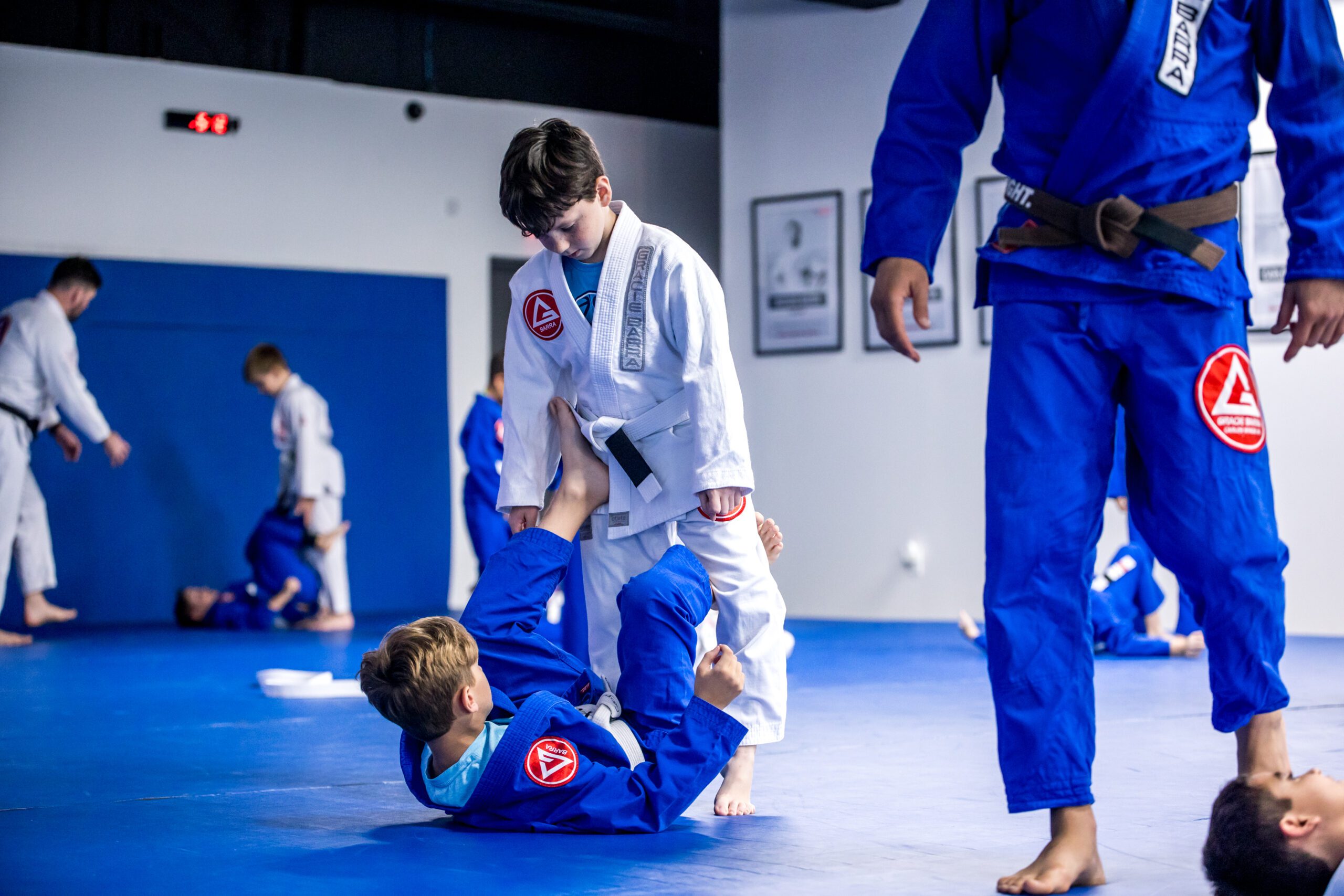
Prepare Your Teen for the Future
Enrolling your teenager in a structured self-defense program, such as Brazilian Jiu-Jitsu, is one of the most proactive and valuable steps a parent can take. It moves beyond merely discussing safety rules; it gives them the tangible tools and the essential mindset required to protect themselves effectively. They gain physical readiness, exceptional mental fortitude, and the social intelligence necessary to navigate the world with confidence and respect. This learned ability to handle pressure and conflict will serve them well in all aspects of their lives—from the classroom to their future professional careers.
brazilian jiu jitsu in research forest
Ready to provide your teen with the life-changing skills of self-defense, confidence, and discipline? Visit the official GB Research Forest website now to explore our specialized youth programs designed for teenagers. Schedule their free trial class and empower their future today: Start Your Teen’s BJJ Self-Defense Training

